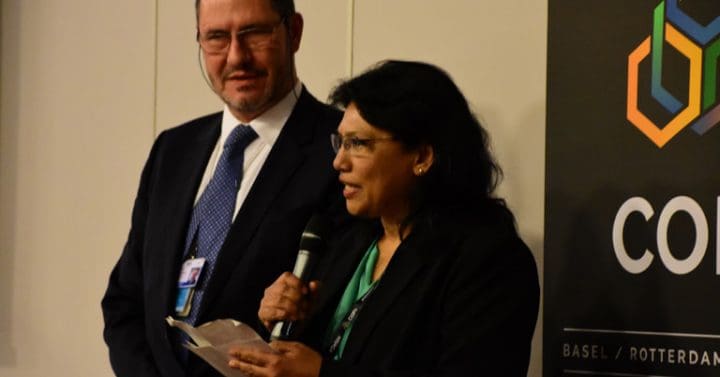I would like to thank KEMI for nominating me and the members of the selection committee. As a woman, a feminist, and an advocate of agroecology and for the elimination of pesticides, it is an honour to be one of the recipients of the “Gender Pioneers for a Future Detoxified” award.
Let me acknowledge the millions of rural women on the ground who are in the frontlines of the struggle against highly hazardous pesticides in their daily lives as farmers, workers, and consumers. This recognition I dedicate to and share with them.
They have inspired me with their commitment to protect their children, their families, and their communities from hazardous pesticides and to work for non-chemical alternatives. The reality of pesticide use in the farms and plantations is horrendous and women as sprayers often do not have the information about what they are spraying and what the impacts are. When they are poisoned, there is no medical support. Their health issue, like issues of women in general, are rarely taken seriously. This is because as women, they are still in position of subordination in their homes and communities, and at the national level.
It has been my privilege to contribute in the struggle of women through our work at PANAP. In our little way, we help build the capacity of women to monitor the impact of pesticides on health and the environment through what we call community pesticide action monitoring or CPAM. This process helps women become more organised to take action against harmful pesticides in their communities and at the national level. We take the results of these community monitoring initiatives to the global level such as here in the BRS and other platforms. By doing so, we hope to highlight the reality faced by many communities that are exposed to highly hazardous pesticides and lobby for policy reforms.
Aside from pesticide monitoring, we also provide support to women and other rural sectors for capacity building in agroecology. All these efforts are meant to ensure that women and children and the communities are no longer poisoned and silenced; and that they have sustainable livelihoods, healthy and safe environment, and production systems that are just.
This recognition will serve as an inspiration for me to continue in my advocacy for women and the environment, for agroecology and food sovereignty, and for social justice.
Thank you.








Discussion about this post